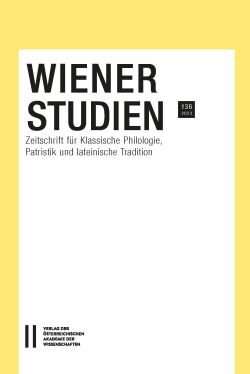
Wiener Studien 136/2023, pp. 223-296, 2023/07/11
Zeitschrift für Klassische Philologie, Patristik und lateinische Tradition
Johannes Trithemius (1462–1518) was a German Benedictine abbot who wrote books on many varied topics: theological problems, literary history, cryptography, monastic history, Frankish history, and the history of the Holy Roman Empire. Chapter I discusses Trithemius in general terms and introduces his Compendium sive Breviarium primi voluminis chronicarum sive annalium de origine regum et gentis Francorum (Mainz 1515), in which he described 45 generations of rulers of the Franks between ca. 440 B.C.–440 A.D., followed by 17 generations of Merovingian kings. He claimed as his source the manuscript of a certain Hunibaldus, an author who allegedly lived in the times of Clovis I (ca. 480–511 A.D.). In fact, Trithemius himself had invented both his author and his manuscript. Chapter II presents Trithemius’ fictitious history of the Franks in the context of the desire of Emperor Maximilian I to have august royal forbears related to the Trojans (Troja-Legende). It discusses the theories brought forward by modern scholars to explain why Trithemius (or anyone, for that matter) could have engaged in such outrageous historical forgery. Chapter III provides the first annotated translation of a part of the biographical sequence in which Trithemius presents the history of the Franks. The author shows how, with the help of which sources and to what purpose this forgery was perpetrated. Chapter IV discusses how Trithemius’ “Hunibaldus” was received in contemporary and later genealogy and historiography. While Trithemius was criticized from the start as an unreliable historian, he also found many credulous readers down through the 19th century. It also becomes clear how ideas about the ancestors of the Habsburgs developed before finally finding their present form.